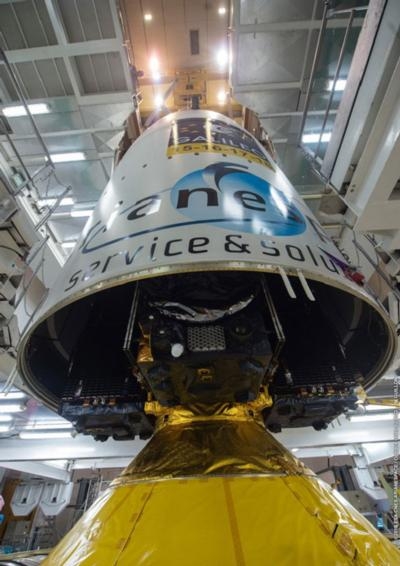Wed, Nov 16, 2016
Advertisement
More News
 Aero-News: Quote of the Day (12.11.25)
Aero-News: Quote of the Day (12.11.25)
"The owners envisioned something modern and distinctive, yet deeply meaningful. We collaborated closely to refine the flag design so it complemented the aircraft’s contours w>[...]
 ANN's Daily Aero-Term (12.11.25): Nonradar Arrival
ANN's Daily Aero-Term (12.11.25): Nonradar Arrival
Nonradar Arrival An aircraft arriving at an airport without radar service or at an airport served by a radar facility and radar contact has not been established or has been termina>[...]
 Classic Aero-TV: David Uhl and the Lofty Art of Aircraft Portraiture
Classic Aero-TV: David Uhl and the Lofty Art of Aircraft Portraiture
From 2022 (YouTube Edition): Still Life with Verve David Uhl was born into a family of engineers and artists—a backdrop conducive to his gleaning a keen appreciation for the >[...]
 Airborne-NextGen 12.09.25: Amazon Crash, China Rocket Accident, UAV Black Hawk
Airborne-NextGen 12.09.25: Amazon Crash, China Rocket Accident, UAV Black Hawk
Also: Electra Goes Military, Miami Air Taxi, Hypersonics Lab, MagniX HeliStrom Amazon’s Prime Air drones are back in the spotlight after one of its newest MK30 delivery drone>[...]
 Airborne 12.05.25: Thunderbird Ejects, Lost Air india 737, Dynon Update
Airborne 12.05.25: Thunderbird Ejects, Lost Air india 737, Dynon Update
Also: Trailblazing Aviator Betty Stewart, Wind Farm Scrutiny, Chatham Ban Overturned, Airbus Shares Dive A Thunderbird pilot, ID'ed alternately as Thunderbird 5 or Thunderbird 6, (>[...]
blog comments powered by Disqus




